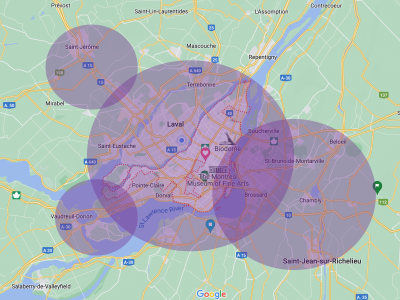Introduction
Giving birth is one of a woman’s most significant and life-changing events. While the arrival of a new baby can bring immense joy and happiness, it can also be a challenging and overwhelming experience, particularly in the weeks and months following childbirth. This period, known as the postpartum period, is a time of physical, emotional, and psychological adjustment for new mothers. New mothers need to receive the emotional support they need during this time to navigate the challenges and transitions that come with motherhood.
The Emotional Rollercoaster of the Postpartum Period
The postpartum period is characterized by a range of emotions that can be intense and overwhelming for new mothers. The hormonal changes that occur during pregnancy and childbirth can contribute to mood swings, feelings of anxiety, sadness, and irritability. Additionally, the physical and emotional demands of caring for a newborn can leave new mothers feeling exhausted, overwhelmed, and isolated.
The Baby Blues
It is not uncommon for new mothers to experience what is known as the baby blues in the days and weeks following childbirth. The baby blues are characterized by feelings of sadness, anxiety, and tearfulness that can come and go. These feelings are often a result of hormonal changes, lack of sleep, and the overwhelming new responsibilities of caring for a newborn. While the baby blues usually resolve independently within a few weeks, new mothers need to receive emotional support during this time.
Postpartum Depression
In some cases, the baby blues can develop into a more severe condition known as postpartum depression. Postpartum depression is a mood disorder that affects up to 15% of new mothers and can have a significant impact on a woman’s ability to function and care for her baby. Symptoms of postpartum depression can include persistent feelings of sadness, hopelessness, irritability, loss of interest in activities, changes in appetite and sleep patterns, and feelings of guilt or worthlessness. New mothers experiencing these symptoms must seek help from a healthcare provider and receive the emotional support they need.
The Importance of Emotional Support Postpartum
Emotional support is essential for new mothers during the postpartum period. It can help new mothers navigate the challenges and transitions of motherhood, reduce stress and anxiety, improve mood and well-being, and strengthen the mother-infant bond. Emotional support can come in many forms, including:
Support from Partner, Family, and Friends
Having a strong support system of partners, family members, and friends can provide new mothers with the emotional support they need during the postpartum period. Partners can offer practical help with household tasks and childcare, provide emotional support and encouragement, and listen to new mothers share their thoughts and feelings. Family members and friends can also provide practical help, a break for new mothers to rest and recharge, and reassurance and encouragement.
Support Groups
Joining a postpartum support group can be a valuable source of emotional support for new mothers. Support groups provide a safe space for new mothers to connect with others going through similar experiences, share their feelings and experiences, and receive guidance, validation, and encouragement. Support groups can also provide access to resources and information on postpartum depression and other mental health issues.
Therapy and Counseling
Therapy and counselling can be beneficial for new mothers struggling with postpartum depression or other mental health issues. A mental health professional can provide individualized support, guidance, and treatment to help new mothers manage their symptoms, improve their coping skills, and develop strategies for self-care. Therapy and counselling can also help new mothers explore any underlying issues that may be contributing to their emotional distress.
How to Support a New Mother Emotionally
Supporting a new mother emotionally during the postpartum period involves being present, attentive, and compassionate. Here are some ways to provide emotional support to a new mother:
Listen and Validate
Listen to the new mother’s thoughts and feelings and validate her experiences without judgment. Let her know it’s okay to feel overwhelmed, scared, or anxious, and reassure her that she is not alone in her struggles. Acknowledge her strengths and resilience as a mother and offer encouragement and support.
Offer Practical Help
Offer to help with household tasks, childcare, or meal preparation to give the new mother a break and support her well-being. Small gestures such as running errands, doing laundry, or watching the baby for a few hours can make a big difference in easing the new mother’s burden and allowing her to rest and recharge.
Encourage Self-Care
Encourage the new mother to prioritize self-care and take time for herself. Encourage her to rest when tired, eat nourishing foods, stay hydrated, and engage in activities that bring her joy and relaxation. Remind her that taking care of herself is essential for her well-being and ability to care for her baby.
Be Patient and Understanding
Be patient and understanding with the new mother as she navigates the challenges of motherhood. Recognize that she may be experiencing a range of emotions and that feeling overwhelmed, exhausted, and emotional is normal. Offer empathy, compassion, and reassurance to help her feel supported and understood.
Conclusion
Emotional support is essential for new mothers during the postpartum period. It can help new mothers navigate the challenges and transitions of motherhood, reduce stress and anxiety, improve mood and well-being, and strengthen the mother-infant bond. By providing emotional support through listening, validating, offering practical help, encouraging self-care, and being patient and understanding, we can help new mothers feel supported, valued, and empowered during this transformative time. Let’s all make an effort to support and uplift new mothers as they embark on this incredible journey of motherhood.






